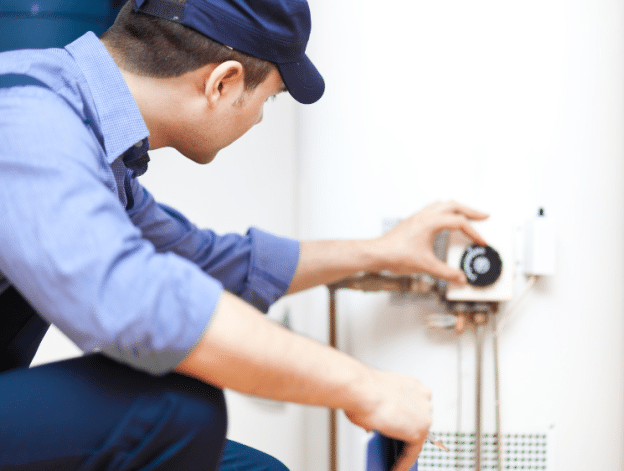The air and water in offices shape staff health. However, indoor air and water often harbor unseen hazards – airborne allergens, germs, and toxins permeate sealed spaces while water grows contaminated over time. The result? Gradual inflammation, lethargy, headaches and sickness.
Strategic air and water filtration eliminates these threats, purifying atmospheres for employee vitality and robust business operations. Investing in healthier indoor ecology generates thriving workplaces, delivering returns as performance improves. Because enhancing shared resources like air and water collectively lifts a company by protecting its most valuable asset – its people.
The Importance of Filtration
In today’s world where health and wellbeing are paramount priorities, a company’s workspace environment plays a vital role. One critical yet often overlooked aspect is the quality of air and water within offices. Filtration systems are key here – properly optimized offices that utilize quality filtration not only bolster employees’ health but also enhance productivity and efficiency.
At its core, quality filtration is critically important for any office. It’s easy to miss the invisible particulates permeating the air or water, but neglecting them can negatively impact health over time. From dust mites and allergens to bacteria and viruses, office air contains many potential hazards.
Clearly, spaces sans proper filtration are more likely to propagate airborne diseases, worsen allergies, or spur respiratory issues leading to more employee sick days. In contrast, offices prioritizing robust filtration systems ensure holistic wellbeing among personnel. Investing in quality air and water filtration demonstrates a commitment to employee health.
Filtration Benefits
Installing well-performing filtration systems yields manifold upsides for office settings. Apart from reducing health risks associated with inferior air quality, filtration refines the overall environment. It cleanses the air by eliminating irritants that often cause coughing, sneezing or other annoyances decreasing productivity among teams. Employees get sick less often and feel more comfortable at work, enhancing engagement and performance.
An employee’s disposition depends heavily on their physical habitat – more salubrious climes elicit greater joy and work efficiency. Lower pollutant levels ease annoying symptoms, directly bolstering task focus. Uncomfortable employees are less motivated and productive.
Filtap Solutions in Offices
Australia’s leading water filtration supplier, Filtap is also making strides in promoting quality filtration within office spaces. Their services, seen here at www.filtap.com.au, range from providing drinking water solutions, ensuring clean and purified water, to offering efficient air purifiers for a healthier breathing environment.
Incorporating Filtap’s solutions in an office setting doesn’t just mean better health for your employees. It’s essentially nurturing an environment where people feel cared for – resulting in heightened morale and more effective teams.
Types of Filtration Systems
Today’s market contains diverse filtration systems, enabling offices to select optimal solutions fitting their needs. Air options range from essential filters targeting larger particles like dust and pollen to more advanced types like activated carbon models absorbing odors and harmful compounds.
Water filtration systems comprise activated carbon filtering, reverse osmosis, UV sanitization and more. Each variant offers unique perks tailored for varied office situations and specifications. From standalone water coolers to whole-facility set ups, scaleable equipment exists for all office sizes and budgets.
Evaluating Filtration Needs
Before picking filtration systems, understanding precise office requirements is paramount. Key considerations include headcount, time spent inside and typical local pollutants. Performing periodic indoor air quality (IAQ) checks ensures filtration systems keep pace as conditions evolve.
Indoor air quality (IAQ) assessments provide valuable illumination identifying particle types and suggesting tailored solutions. Routine IAQ checks offer robust data to select apt filtration. Partnering with experts like Filtap facilitates appropriate system selection and sizing.
Office Design and Filtration
An office’s design directly impacts air quality. Intelligent layouts enabling natural light and airflow are crucial. However, individual behaviors at desks also affect wellbeing. Staying healthy at your desk involves ergonomic furniture allowing movement plus drinking filtered water to enable hydration.
Incorporating air/water filtration systems into office décor also upgrades aesthetics and quality. While plants aid natural filtration, personnel play pivotal pollution filtering roles via mindful desk habits benefiting themselves and colleagues. Choices like attentive posture, water intake and removing food waste cascade into improved collective air quality through simple, daily actions.
Maintenance of Filtration Systems
Consistent filtration system upkeep is as important as initial installation. Poorly maintained units lower efficiency, drag down air/water quality and hike long-term expenses. Companies lacking expertise may consider partnering with external service providers to handle upkeep.
Routine component checks and replacements ensure optimal performance. Ignoring maintenance can degrade systems, inflating repair bills while jeopardizing staff health. Skimping on upkeep underserves employees and the bottom line.
Cost-Benefit Analysis
Although initial outlays for buying and installing systems seem high, it’s prudent to view this as investment rather than cost. This perspective is buoyed when weighting short and long-term gains – from health perks to reduced sick time.
Both tangible and intangible benefits of quality filtration often overshadow expenses when factored through employee productivity, morale and wellness prisms. Healthier, happier teams are key drivers justifying filtration investments.
Influence on Employee Health
The correlation between good air/water quality and employee health isn’t nebulous. Poor indoor air/water quality leads to problems such as frequent illnesses, exacerbated allergies, fatigue, headaches and overall discomfort among staff members. These disturbances significantly affect employees’ productivity and morale.
On the other hand, superior air/water quality resulting from effective filtration reduces sickness absence rates, boosts mental clarity, improves respiratory health and fosters a sense of wellbeing among the workforce.
Optimal Hydration Impact
While people often focus on air quality, clean drinking water is equally crucial – poor quality water can lead to significant health issues over time. Daily hydration needs are conveniently met when employees trust the cleanliness and taste of office water.
With a quality filtration system installed, providing healthy and tasty water becomes effortless. It keeps staff adequately hydrated, which is key for brain function, concentration and overall performance at work.
Maintaining Water Supplies
During storms, outages or emergencies disrupting normal utility access, in-office water reserves offer a literal lifeline for personnel and operations continuity. Enter water tank storage – sufficiently sized tanks provide ample reserves ensuring business resilience when the unexpected happens. Water storage also aids sustainability by reducing plastic bottle dependencies.
For image-conscious companies desiring next-level preparation, customized branded tanks display corporate swagger. And considering their typical roof or closet positioning, opportunities abound for showcasing company colors and logos when refilling.
Sustainability Perspective
Top-tier filtration isn’t just good for health – it benefits the planet too. Modern systems shrink bottled water reliance, considerably reducing plastic waste. Emitting fewer airborne contaminants also contributes to sustainability.
Moreover, certain reusable, washable filters represent another eco-friendly step. Overall, excellent office filtration signals meaningful sustainability action and social responsibility.
Advanced Water Filters for Offices
With all the air quality focus, top-notch water filtration for office settings can be overlooked. Yet given daily hydration relevance coupled with waterborne illness risks, advanced on-site water treatment merits equal attention.
Beyond basic filtration, advanced technologies like reverse osmosis and ultraviolet systems provide defense against microbiological threats while radically improving purity and taste.
This empowers companies to leverage water access in new ways – from installing refill stations to supplying custom glass-bottled water featuring office branding. See more here about innovative water filtration methods that protect workforces while differentiating businesses.
Wrapping it Up
Office filtration systems meaningfully optimize work habitats. While air and water quality upgrades may not initially stand out, benefits accumulate over time – healthier employees, improved productivity, fewer absences and superior workplace environs.
Keeping pace with cutting-edge filtration developments assists companies in providing welcoming, salubrious offices that support staff health and corporate sustainability values alike. Ultimately, properly filtered offices give companies an actionable competitive edge.


